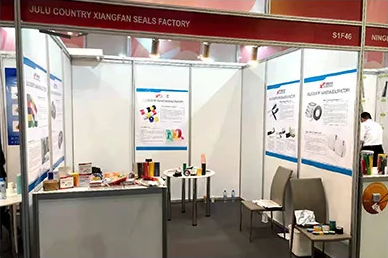The Importance of Thermal Insulation Tape in High-Temperature Applications
Thermal insulation tape is a specialized adhesive tape designed to prevent heat transfer, making it an essential component in various high-temperature applications. As industries strive for improved energy efficiency and safety, the demand for high-quality thermal insulation materials has surged. This article will explore the significance of thermal insulation tape in high-temperature settings, its applications, benefits, and the factors to consider when selecting the right product.
Understanding Thermal Insulation Tape
Thermal insulation tape is typically made from materials with excellent thermal resistance, such as fiberglass, silicone, or ceramic composites. These materials are not only capable of withstanding extreme temperatures but also contribute to the overall efficiency of thermal management systems. The tape often features a pressure-sensitive adhesive that adheres securely to various surfaces, creating a reliable barrier against heat loss.
Applications of Thermal Insulation Tape
1. Industrial Manufacturing In factories and manufacturing plants, machinery often operates at high temperatures. Thermal insulation tape is commonly used to wrap pipes, valves, and equipment, helping to maintain optimal operating temperatures and reducing energy consumption. It also protects personnel from accidental burns.
2. Electrical Insulation In electrical engineering, thermal insulation tape is crucial for protecting wires and components that may be exposed to high heat. It helps prevent overheating, which can lead to equipment failure or hazardous situations, thereby enhancing safety and reliability.
3. Automotive Industry The automotive sector uses thermal insulation tape extensively in engines and exhaust systems. By insulating heat-sensitive components, the tape ensures that vehicles operate efficiently and helps reduce the risk of heat-related damage.
4. Aerospace Applications In aerospace, where extreme temperatures are a common challenge, thermal insulation tape is employed to shield sensitive components from excessive heat. This is essential for maintaining the integrity and functionality of various systems in aircraft.
5. HVAC Systems In heating, ventilation, and air conditioning systems, insulation tape plays a critical role in minimizing heat loss and improving overall efficiency. Proper insulation contributes to lower energy costs and creates a more comfortable indoor environment.
thermal insulation tape high temperature

Benefits of Using Thermal Insulation Tape
The advantages of thermal insulation tape are numerous. Firstly, it helps reduce energy costs by minimizing heat loss in industrial processes and equipment. By maintaining the desired temperature levels, businesses can achieve better energy efficiency and reduce operational expenditures.
Secondly, thermal insulation tape enhances safety by protecting users from burns or injuries caused by high-temperature surfaces. This is especially vital in environments with a high risk of accidents.
Additionally, using thermal insulation tape can extend the lifespan of machinery and equipment. By preventing overheating, the tape reduces wear and tear, contributing to lower maintenance costs and downtime.
Selecting the Right Thermal Insulation Tape
When choosing thermal insulation tape for high-temperature applications, it is essential to consider several factors. First, determine the maximum operating temperature the tape will encounter. Select a product that can withstand temperatures exceeding your specific requirements to ensure optimal performance.
Next, evaluate the adhesive properties of the tape. A strong adhesive is necessary for ensuring longevity and preventing detachment under high heat. It’s also important to consider the tape’s chemical resistance, particularly in industrial settings where exposure to various substances is common.
Finally, the thickness and width of the tape should be assessed based on the intended application. Thicker tapes generally offer better insulation but may be more challenging to apply in tight spaces.
Conclusion
Thermal insulation tape is a vital component in many high-temperature applications across various industries. Its ability to provide reliable thermal protection, enhance safety, reduce energy costs, and extend equipment life makes it an indispensable tool for maintaining efficiency and safety in hot environments. As industries continue to embrace innovative solutions for thermal management, thermal insulation tape will remain at the forefront of advancements in safety and efficiency. Choosing the right tape can make all the difference in achieving excellent thermal performance and operational success.
-
XIANGFAN Rubber Tape-Ultimate Solutions for All Your Insulation NeedsNewsJun.24,2025
-
XIANGFAN Rubber Tape-Protection for Industrial and Residential ApplicationsNewsJun.24,2025
-
XIANGFAN Rubber Tape: Superior Safety and Sealing for Demanding EnvironmentsNewsJun.24,2025
-
XIANGFAN Rubber Tape: Reliable Solutions for Every Electrical ChallengeNewsJun.24,2025
-
XIANGFAN Electrical & Industrial Tape: Powering Reliability Across IndustriesNewsJun.24,2025
-
XIANGFAN Electrical & Industrial Tape: Excellence in Every ApplicationNewsJun.24,2025
